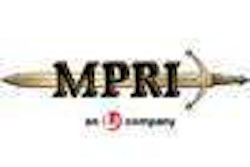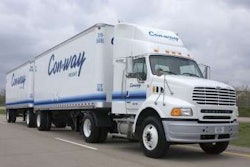The Oakland Board of Port Commissioners last week approved its Maritime Air Quality Improvement Plan, a comprehensive master plan to improve air quality related to port maritime operations through 2020.
The board authorized the use of $2 million of Port of Oakland funds to help truckers pay for a diesel particulate filter (DEF) that will reduce diesel pollution, and the use of up to an additional $3 million of port funds to reduce pollution from trucking at the Oakland seaport. The emissions filters are certified to reduce diesel emissions by 85 percent. The port commissioners approved the funding in support of retrofitting drayage trucks that serve the Port of Oakland to help truckers meet the new state regulations that begin to take effect next year. The port board also approved funding to install 10 DPFs on port-owned vehicles in advance of statewide requirements, with a goal of reducing diesel emissions from each vehicle by 85 percent.
“The Port of Oakland has an 80-year-history of implementing plans to grow the port’s transportation facilities while providing economic, social and environmental benefits to serve the region and our citizens,” says Omar Benjamin, Port of Oakland executive director. “We are confident and intend to achieve our goal of reducing the health risk from diesel pollution from port sources by 85 percent by the year 2020.”
Port Board President Victor Uno says MAQIP is unique because it was developed from the ground up through ongoing consultation and input from a multi-stakeholder task force. “Reducing pollution is vital to the health of our neighbors and our region,” Uno says. “Air pollution comes from many sources in the Bay Area, and we want to do our part to help reduce diesel pollution from port-related activities.”
According to the March 2008 Health Risk Assessment by the California Air Resources Board, the contribution of all Oakland seaport sources to West Oakland health risk from diesel pollution is about 16 percent, of which 4 percent of the total West Oakland health risk from diesel pollution is attributed to port drayage trucks. Also, 84 percent of the West Oakland health risk from diesel pollution is due to about 4 percent from Union Pacific Railyard (UP) and about 80 percent from sources unrelated to Port of Oakland or UP sources.
“This plan (MAQIP) is a valuable tool, allowing us to move forward with feasible projects that clean up the air and thereby promote a healthier community,” says Richard Sinkoff, the port’s director of the environmental programs and planning division. “One way we’ll reach our 85 percent goal is by working with our tenants to dramatically cut emissions from ship engines while they’re at dock. Another is by continuing to help truckers retrofit or replace their diesel engines. The MAQIP plan reflects the port’s core business, which is delivering vital transportation services to our region. We rely on regulatory agencies to enforce their regulations. As a transportation services agency, part of the port’s role is to assist our customers and tenants in the complex task of complying with new emissions regulations that will help clean up the air.”











